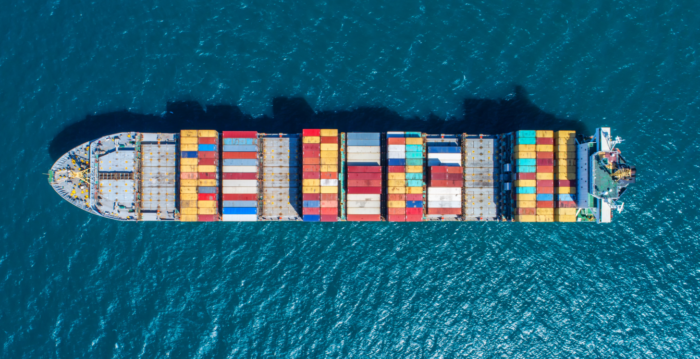A new report by oil major Shell highlights the important role that hydrogen and fuel cells could play in achieving a decarbonised shipping sector and calls for the IMO to adopt a clear trajectory to net-zero emissions by 2050.
The release of the ‘Decarbonising Shipping: Setting Shell’s Course’ report comes in line with Shell’s shared ambition to become net-zero emissions energy business by 2050.
The shipping industry needs to develop the new technologies, fuels and infrastructure required for a net-zero emissions sector at a pace never previously seen. This will require the determination of all of those at the forefront of this transition,
…said Grahaeme Henderson, Global Head of Shell Shipping & Maritime.
Shell’s analysis points to hydrogen with fuel cells as the zero-emissions technology which has the greatest potential to help the shipping sector achieve net-zero emissions by 2050. Shell will seek to advance its research in this area, as hydrogen is projected to benefit from build-out across other industry and transport sectors, making it potentially more cost competitive than alternative zero-emissions fuels.
Meanwhile, as a zero-emissions fuel is not likely to be available on a commercial scale globally until the 2030s, it is essential that the industry takes action to reduce emissions now with solutions available today, the report argues. Solutions such as wind, air lubrication, advanced engine lubricants and digital optimisation technologies, must all be deployed to close the gap to net-zero emissions as much as possible.
In addition, Shell stresses the importance of LNG for lowering GHG emissions today. Compared to heavy fuel oil, from extraction to combustion LNG reduces greenhouse gas emissions by up to 21% for 2-stroke slow speed engines and up to 15% for 4-stroke medium speed engines. It can also be used with fuel cells to aid the development of this key technology.
In this way, LNG can play a critical role in helping the industry to lower its emissions today and develop technology for the zero-emissions fuels of the future, while continuing to address methane slippage.
Noting the importance of collaboration for achieving tangible results in emissions reduction, Shell has set a course of key actions it will undertake:
- call for the IMO to adopt a clear trajectory to a net-zero emissions shipping sector by 2050;
- develop the experience and standards for use of hydrogen in a marine environment and enable commercial deployment of hydrogen across sectors;
- establish a consortium to develop and trial fuel cells on a commercial deep-sea vessel;
- develop a set of performance standards for application on future new-build vessels for all ship types with the aim to deliver up to 25% emissions savings;
- implement a programme of emissions data collection across Shell’s internationally traded time and voyage charters with the intent to publish annual carbon intensity data;
- double Shell’s existing LNG bunkering infrastructure on key international trade routes by the mid-2020s;
further build the commercial case for our unique industry offering of carbon neutral lubricants through development of our nature-based solutions portfolio; and - collaborate deliberately and decisively with those at the leading edge of the transition in the sector in order to accelerate decarbonisation. This will include, for example, working within the Getting to Zero coalition, and developing an industry-based coalition covering the entire value chain for US and Canadian cabotage shipping operations.






























































